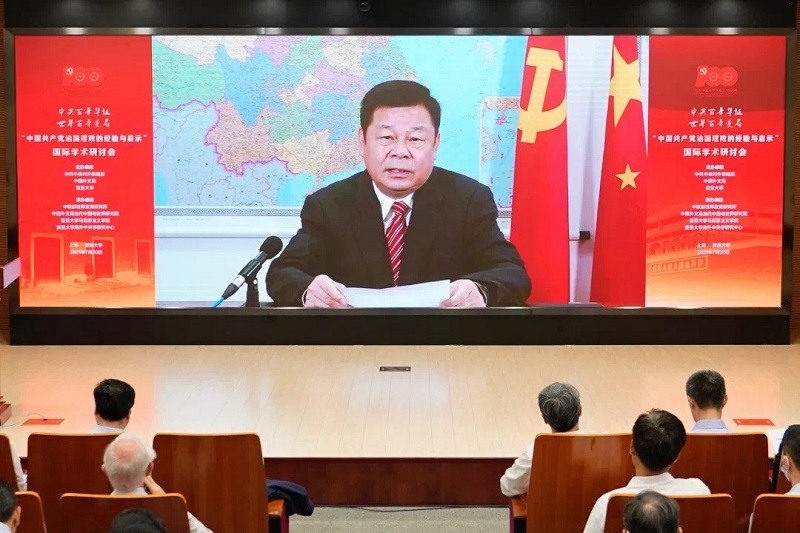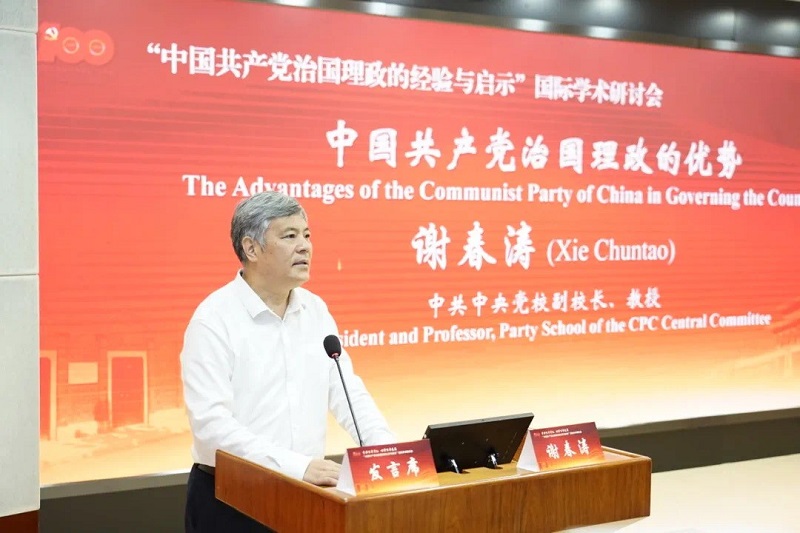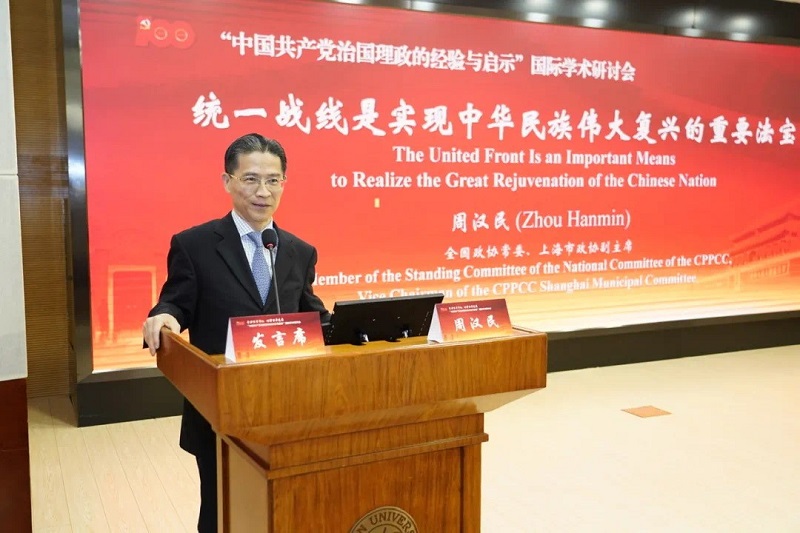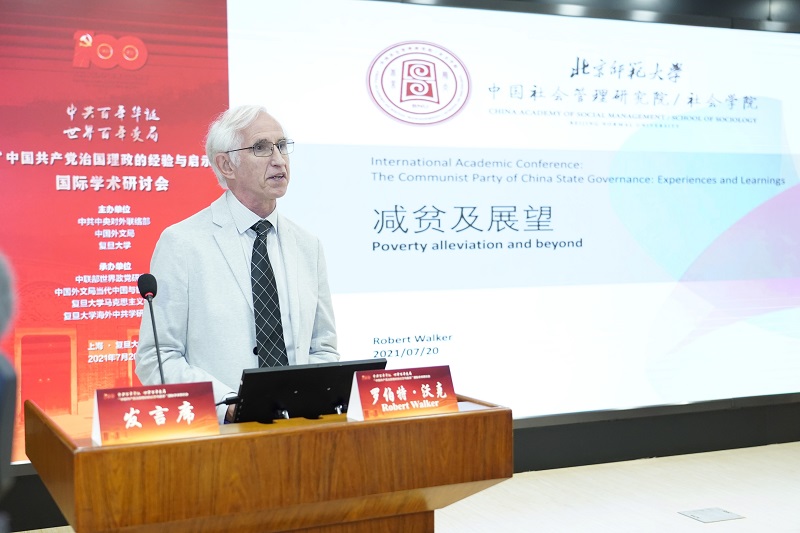On July 20, the international academic conference on the experience and enlightenment of the Communist Party of China (CPC) in governing the country was held in Fudan University, Shanghai. The conference was jointly organized by the International Department of the CPC Central Committee, China International Publishing Group (CIPG), and Fudan University.

CIPG President Du Zhanyuan delivers a keynote speech at the opening of the international academic conference on the CPC’s experience and enlightenment in governance on July 20 in Shanghai.
In his keynote speech via video link, CIPG President Du Zhanyuan summarized the secret to the CPC’s success in running the country from the following four aspects: always putting the people first, ceaselessly exploring the right path, strengthening the Party’s self-building, and striving for a shared future for all.

Xie Chuntao, vice president of the Party School of the CPC Central Committee, gives a speech at the conference.
Xie Chuntao, vice president and professor of the Party School of the CPC Central Committee stressed eight advantages of the CPC’s governance in his address: a unique party system, a special national structure, a sound organizational system, the dominance of public ownership, a system where the Party leads all sectors, the notion of putting people first, glorious traditional culture, and theoretical innovation.

Zhou Hanmin, member of the Standing Committee of the CPPCC National Committee elaborates on the importance of the united front in realizing the great rejuvenation of the Chinese nation at the conference.
A united front is key to realizing the great rejuvenation of the Chinese nation, said Zhou Hanmin, member of the Standing Committee of the Chinese People’s Political Consultative Conference (CPPCC) National Committee and vice chairman of the Shanghai Municipal Committee of the CPPCC. As the ruling party, the CPC needs to, and must guide the other eight political parties for the same goal of a harmonious society, according to Zhou.

Robert Walker, academician of Royal Academy of Social Sciences of the U.K., shares his opinion on China’s poverty alleviation at the conference.
From a foreign perspective, Robert Walker, academician of Royal Academy of Social Sciences of the U.K., also a professor with Beijing Normal University, spoke about his study on China’s poverty reduction campaign, illustrating his speech with informative diagrams. He noted that with strong political leadership, China has coordinated and mobilized people of all walks of life and all kinds of resources, at national, provincial, township and village levels, which was the key to its success.
Foreign participants including Saikhansanaa Khurelbaatar, general sectary and foreign affairs advisor of the Mongolian People’s Party, and Leandro Compagnucci, deputy director general of the Argentine Embassy in China expressed their intention to learn from China’s development to benefit their own countries.
In addition, attendees such as Kerry Brown, director of the Institute of Chinese Studies at King’s College London, David Ferguson, English revision expert and foreign senior editor of CIPG, as well as scholars from Renmin University of China and Fudan University all shared their views at the conference.
In the afternoon, the conference was divided into four parallel sub-forums around the speech delivered by General Secretary Xi Jinping on July 1 at the grand gathering in Beijing marking the centenary of the CPC, with focuses on the new relationship between the CPC and the world, the way and direction of the CPC in governing the country, and international studies on the CPC.